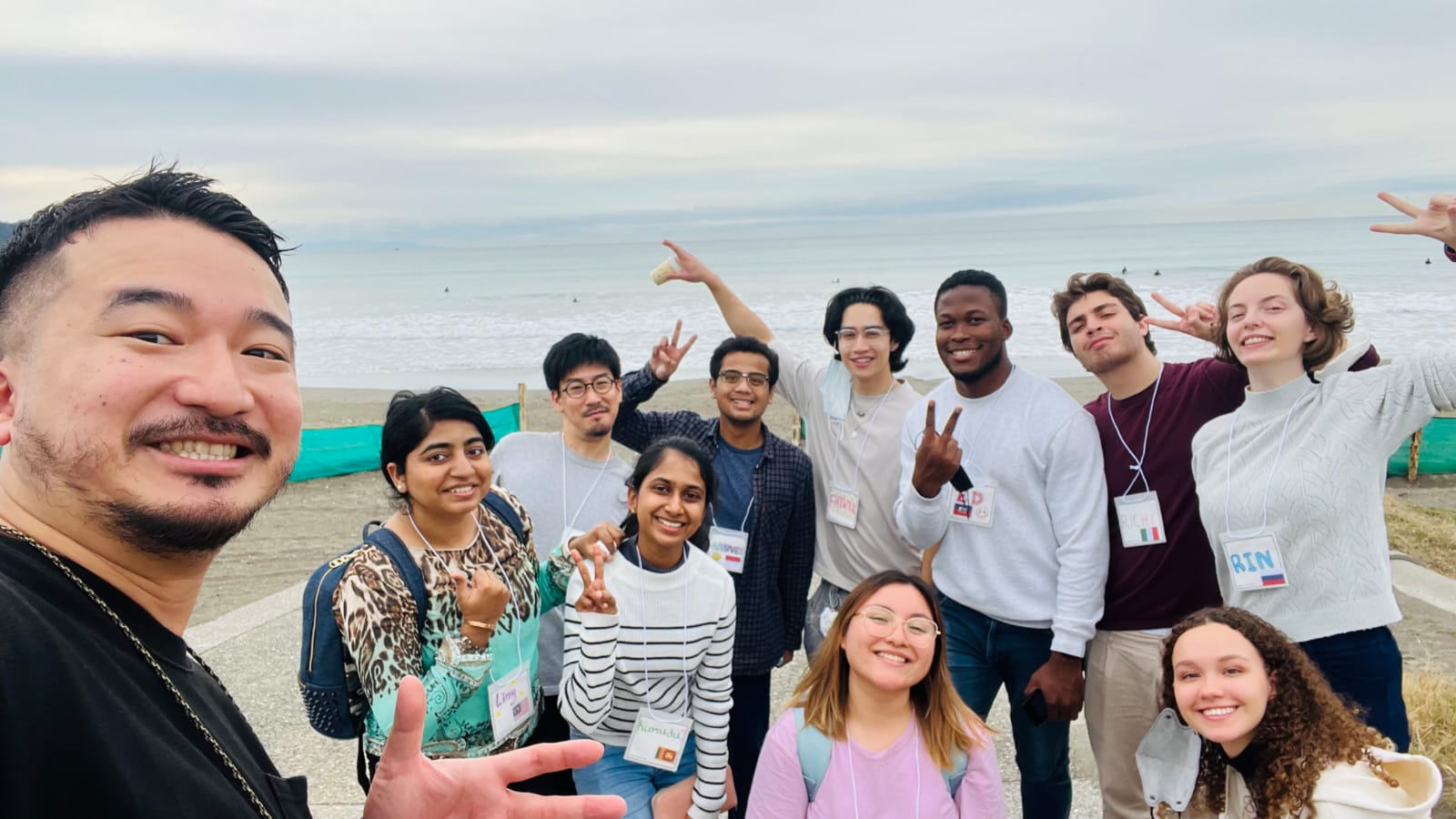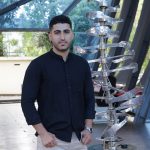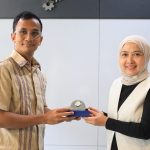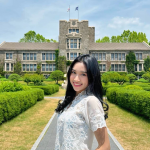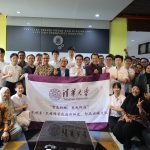Exploring New Perspectives and Cultures: Gabriele’s Experience at Tokyo Tech
Experiencing the learning process abroad and obtaining all of its benefits is something valuable for students. FTMD, which has relations with more than 30 of the best universities from around the world, certainly facilitates its students to participate in student exchange programs at their dream universities. Gabriele Maruli Tondi, a senior student of the Mechanical Engineering study program at the Faculty of Mechanical and Aerospace Engineering (FTMD), is currently in his last month as an exchange student at the Tokyo Institute of Technology, Japan, more commonly known as Tokyo Tech at the time of writing this article.
Being one of the selected students and having the opportunity to visit the Land of the Rising Sun is something that Gabriele is grateful for. In addition to experiencing various courses in Tokyo Tech’s international classrooms, Gabriele also gained new insights, friends, and knowledge during his 6-month student exchange program (September 2022 – February 2023). Under the guidance of one of the professors in Tokyo Tech’s laboratory, Gabriele also conducted research on hydrogen combustion, which is related to his final project’s topic. As a result, this will make it easier for him to complete one of the graduation requirements at ITB, which is to finish his final project.
“My consideration leans more towards scholarship and finding research that fits the topic of my thesis, to help with my final project,” Gabriele concluded when asked about the reason for choosing the destination university for the student exchange program.
Research at Tokyo Tech
Regarding the research he conducted, Gabriele explained that his study is an analytical investigation of the composition and structure of the flame resulting from the combustion of hydrogen and oxygen. He chose this topic because he was looking for data that correlates with the subject of his thesis.
The expected output of this investigation is for Gabriele to compile a report and deliver a five-minute presentation to present the results of his research in front of Tokyo Tech professors.
“Tokyo Tech also offers a certificate. But for the certificate to be awarded, the report must be at least ten pages long, and the presentation is like a seminar and will be tested by professors,” he said. When asked about academic journal publications, Gabriele replied that he had no plans to turn the research results into an academic journal.
Cultural and International Student Habits Differences
During the program, Gabriele was placed in a dormitory specifically for male international students from various parts of the world. Gabriele revealed that he gained many new insights from conversations and observing the habits of the students in his dormitory. Like their clothing, mindset, and communication style, each student has their unique cultural differences that set them apart.
“For example, Scandinavians tend to be calmer and more polite, while Western Europeans like Germans or the Dutch are more straightforward. On the other hand, East Asians are mostly shy,” he elaborated. Gabriele concluded that meeting and mingling with new friends from 15 different countries was a unique experience for him.
Gabriele also mentioned that he often spent time with his international friends, walking around and visiting various places both in the capital city of Japan and the outskirts. They even frequently have casual discussions and chats through the Discord application when they plan to go out together.
“Yesterday, we watched the World Cup (2022) together,” he added.
Despite not having any official activities aimed at introducing their respective countries’ cultures to the international community, Gabriele still tried to introduce Indonesia through his cuisine, which he often shared with his friends in the dormitory. “When introducing Indonesia to them (international friends), I usually just cook Indonesian food. I use Indonesian seasonings like tongseng, and chicken soup, and then share it with them,” he explained further.
Main Obstacle: The Language Barrier
Regarding the difficulties encountered during the student exchange program, Gabriele mentioned that the language barrier was his main obstacle. When he first entered the laboratory, Gabriele found it somewhat difficult to infer the reaction of local Japanese students after communicating in full English. Because his dormitory housed international students from various countries, communicating with friends in the dormitory was not a problem for her. However, it was a different story when he encountered lecturers who used Japanese as the medium of instruction during classes. “In class, we should use English because it’s an international class. On the first day, the lecturer used English. But on the second day, they used Japanese because they might have forgotten that there was an exchange student in the class,” he recounted the unique experience.
To overcome the obstacles, Gabriele took a Japanese language course at Tokyo Tech. According to Gabriele, he is capable of simple Japanese conversation using everyday phrases. However, having a full conversation with Japanese people in Japanese remains a challenge for him. “I’m more into practice. So far, I can handle basic conversation for shopping or buying food,” said Gabriele.
Mindset Changes and Testimonials
Interacting with friends from various countries changed Gabriele’s mindset about pursuing a Master’s degree. This decision was triggered by the fact that most students, especially local Japanese students, plan to pursue a Master’s degree immediately after completing their Bachelor’s degree at Tokyo Tech. “Initially, I didn’t want to pursue a Master’s degree. But here, most students take a Master’s degree after completing their Bachelor’s degree because apparently, a Bachelor’s degree is not enough to get a job,” explained Gabriele. In addition to completing his final project, Gabriele also considers continuing his education to a Master’s degree after this exchange program.
Regarding tips on passing the selection process for the student exchange program, Gabriele emphasized that considering the available quota from the International Relations Office (IRO) is crucial, in addition to preparing all the requirements thoroughly. “I think the most challenging part is finding a suitable lab (for research). It is also difficult to find a supervising professor. I have to send emails here and there, and in those emails, I must attach my CV, transcript, reasons, field, and topic that I am looking for. Also, my GPA must be clearly stated in the email body,” Gabriele concluded.
Overall, Gabriele is pleased to participate in the student exchange program in Tokyo. In addition to meeting new friends from various parts of the world and expanding his perspective on education, he gained new insights and knowledge from his research experience and interactions with them. His research was also greatly aided by the data and support provided by his supervising professor in the lab. Although not an official student of Tokyo Tech, experiencing the fun and supportive environment of friends and professors creates an impactful impression that Gabriele will never forget.

